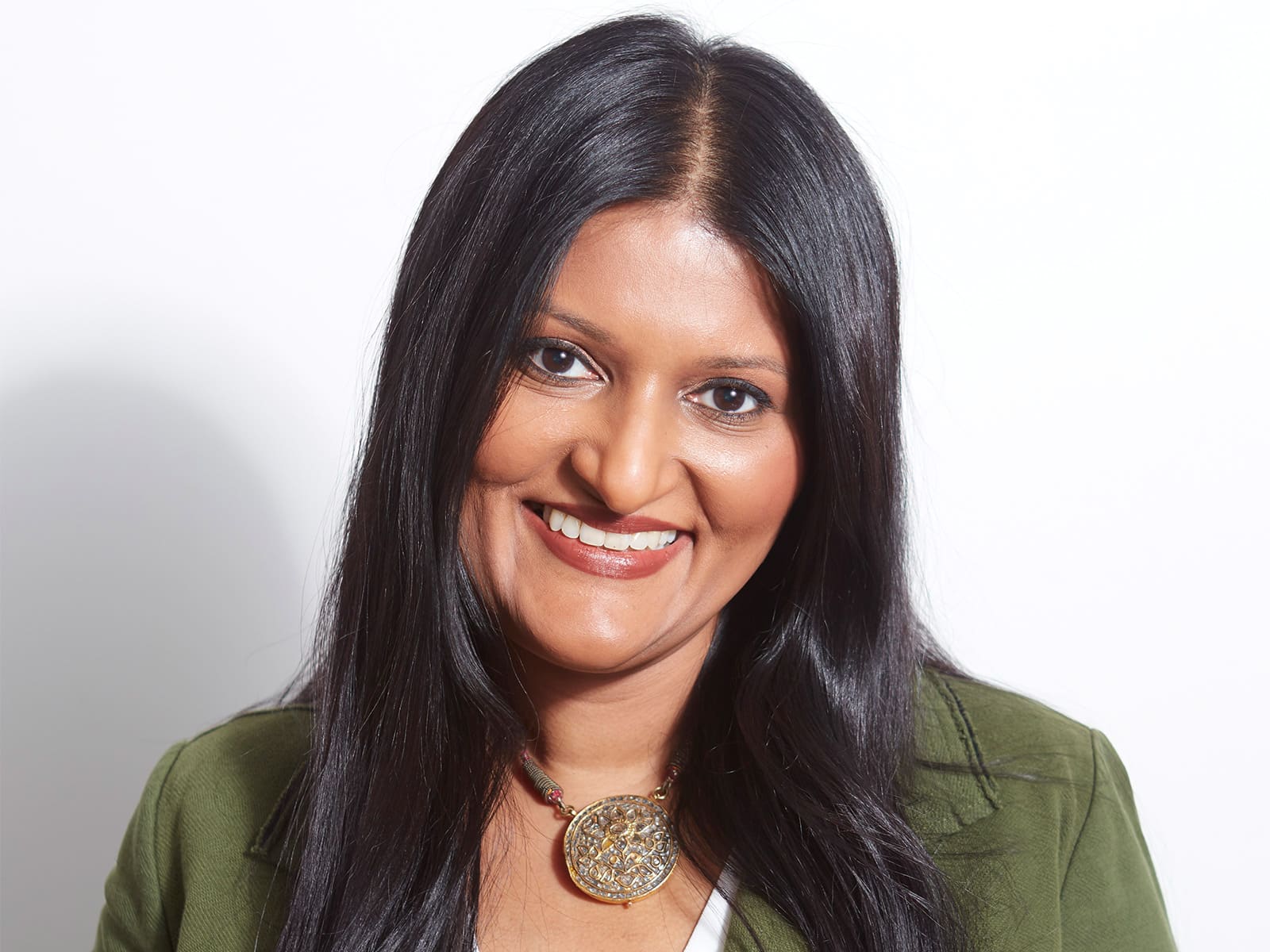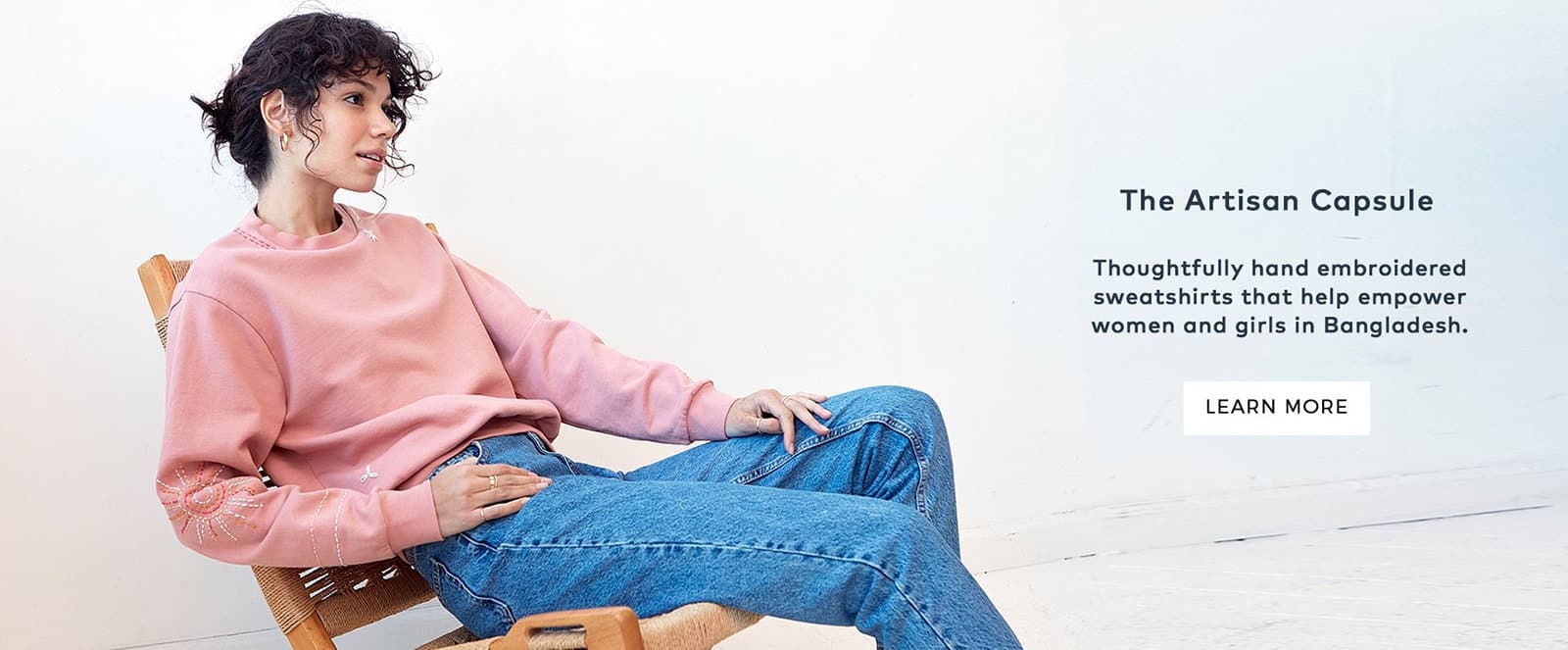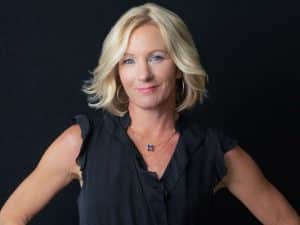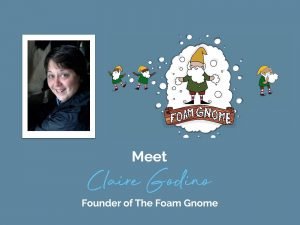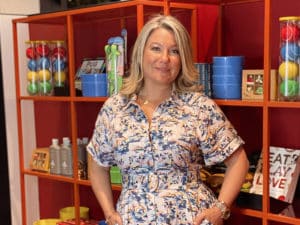Saima Chowdhury is the founder and CEO of Noi Solutions LLC, a global apparel sourcing company and Grey State, a contemporary women’s fashion brand.
Founded in 2009, Noi partners with apparel brands and retailers to provide product life cycle solutions. With a three-year growth rate of 1,519%, Noi Solutions ranked 300 in the 2014 Inc. 500 list of the fastest-growing private companies in the US.
Saima founded Grey State in 2015 to provide an edited selection of relaxed luxury clothing that gives comfort, style, and a sense to calm confidence to a woman’s busy schedule.
Saima is also a Director of the Malek Spinning Mills, Knit Asia Limited, and affiliated companies, a vertically integrated textile and apparel manufacturer in Bangladesh, supplying to leading retailers in the EU and the US.
Before founding Noi Solutions, Saima worked with the Victoria’s Secret Strategy group focusing on customer and market insights. She started her tenure at Limited Brands as the Business and Procurement Manager for Victoria’s Secret Direct Production, where she managed production budgets of $400 million. Saima also worked with the Supply Chain Strategy group at Nike, where she evaluated the benefits and challenges of upstream supply chain partnerships to recommend strategies for apparel source base alignment.
Before business school, Saima served as the Corporate Manager of Malek Spinning Mills in Bangladesh, where she developed, implemented, and supervised the procurement and inventory tracking, and the IPO of Malek Spinning Mills. Saima started her career at Ernst & Young LLP, where she was a Senior Consultant with the Economic and Quantitative Analysis Group.
Saima holds an MBA in Finance from the Wharton School and a BA in Economics and Political Science from Swarthmore College.
Born and raised in Bangladesh, Saima currently resides in New York with her husband and young son.
Our Interview with Saima Chowdhury, the Founder of Noi Solutions LLC and Grey State Apparel
Can you walk us through your career, and what lead you to founding Noi Solutions and Grey State?
I grew up in Bangladesh. I come from an entrepreneurial family. Looking back, I realize that watching my parents build a business planted the seeds of entrepreneurship in me at a very early age. I learned that it was okay to take risks – that it didn’t matter if you didn’t succeed every time. What mattered was your ability to learn from the experience, acknowledge failure, experience disappointment, but most importantly, to pick up the pieces and move on to the next project. They also taught me to be resilient in high-pressure situations and to have gratitude for all of the good things in my life, skills which have been invaluable to me as I’ve built my career.
After years of working for major corporations, I reached a point in my career where I had to either start my own business or continue down the corporate path. I felt very privileged to have had the opportunities I did growing up in Bangladesh, so I knew I wanted to help this developing nation in some way. I knew from working in the apparel industry that Bangladesh held enormous potential in apparel production that wasn’t being fulfilled because of certain pain points, so I saw an opportunity to start a business that would erase these pain points.
I started Noi Solutions in 2009, to help retailers manufacture their goods in Bangladesh and to help Bangladeshi factories market their capabilities to retailers. That same month, I got pregnant! So, for the last ten years, I’ve almost been nurturing two babies: my son and my business.
In 2015, I saw another opportunity to create clothes that were easy, comfortable, and stylish, so I started my second business, Grey State, a sustainable, wellness-focused women’s clothing line.
You’re not just the founder of Noi Solutions and Grey State, but also the director Malek Spinning Mills, Knit Asia Limited, and affiliate companies – how do you balance your time and workload between each of these?
I am not sure I ever achieve perfect balance in my life. My coping mechanism is to have really clear priorities both in my personal and professional lives. I am never 100% finished with any aspect of my life, but I have clear non-negotiables that have to be done. For the rest, as long as I’m balancing my time well between my most pressing priorities, I am happy.
During US business hours, I focus on Noi Solutions and Grey State. But then I start a second shift between 11pm and 1am when Asia opens up. That’s when I do my calls with Malek Spinning Mills and Knit Asia. This works well for me because I’m a night owl! I also travel to Asia every 6 to 8 weeks.
Why are you passionate about Grey State? And what should people know about the company and how does the brand help to reduce environmental damage?
Grey State is a wellness brand. Our mission is to provide wellness to women in two ways—physical and mental.
Women have a lot on their plates, and I started Grey State to make our lives a little bit easier. The two (sometimes nagging) decisions we have to make every day are what to eat and what to wear. So, if we can make the decision on what to wear a bit easier, we’ve taken off some of the burdens.
I believe women should dress for themselves in clothes that are comfortable, easy, and make them feel confident. To accomplish this, we spend a lot of time developing soft and luxurious fabrics, fits that are flattering and universal, and silhouettes that are trend-relevant, not trend-driven.
Physical wellness: the clothes are easy, comfortable, and made with Oekotex certified fabrics (ensures no harmful chemicals are used in the production). The skin is our biggest organ. I believe that wearing clothes made with safe materials is important.
Mental wellness: I believe our consumer cares that clothes are made in a sustainable and ethical manner. Because we own the supply chain, we can provide complete transparency and control over the entire process. We use the UN’s Sustainable Development Goals as a guide and design programs under each goal to ensure we are holding ourselves accountable.
Tell us about The Artisan Capsule. What is it, and why is it important?
Bangladesh has a rich history in textiles going back hundreds of years to the Dhaka Muslin—a famed fabric made by highly skilled artisans that was so fine that 100 yards could pass through a ring. Over time, we have lost some of the heritage.
The kantha stitch is another such heritage of Bangladesh. Women sit around in their spare times and make tapestries using the kantha stitch. The tapestries tell stories of their everyday lives.
I wanted to showcase the work of these everyday artisans. We took our tried and true sweatshirt bodies and embroidered meaningful messages like “love more” with kantha stitch. My favorite is the Novera sweatshirt, which has the distance from NYC to Dhaka (7,863 miles) embroidered on the sleeve.
We are donating 20% of the proceeds from the sale of this collection to the Malek Chowdhury Memorial Girls school in Bangladesh. In Bangladesh, 42% of girls drop out of school before 10th grade. My family founded and fully funds this school, which educates 400 girls. We thought it would be appropriate to support this very important cause with proceeds from this collection.
For brands looking to partner with local artisans, how do you make that initial connection and create a business relationship with the artisans?
It takes time, effort, and patience. We had to find the right artisans to partner with us. It is not easy, and it takes work on the ground. Because I am from Bangladesh, I was able to connect with a number of artisans until we found the right one.
It also takes time and patience. We worked on the project for almost a year before bringing the product to market. The artisans worked per their schedule, so we had to adjust our timing to match their availability. This was an important and meaningful initiative for us, so we were willing to make the adjustments and be flexible to make the project successful.
This was our first collaboration, and we hope to do many more in the future.
What is your favorite product that your online store currently carries?
My current favorite is the Walter Pant. I’ve been wearing it every day in quarantine. The pant is made out of our Hudson Twill fabric, which looks like a woven but is soft and stretchy like a knit. While working from home, I get “dressed” every morning to get in the mood for work, so these were the perfect “non-sweatpant sweatpants.”
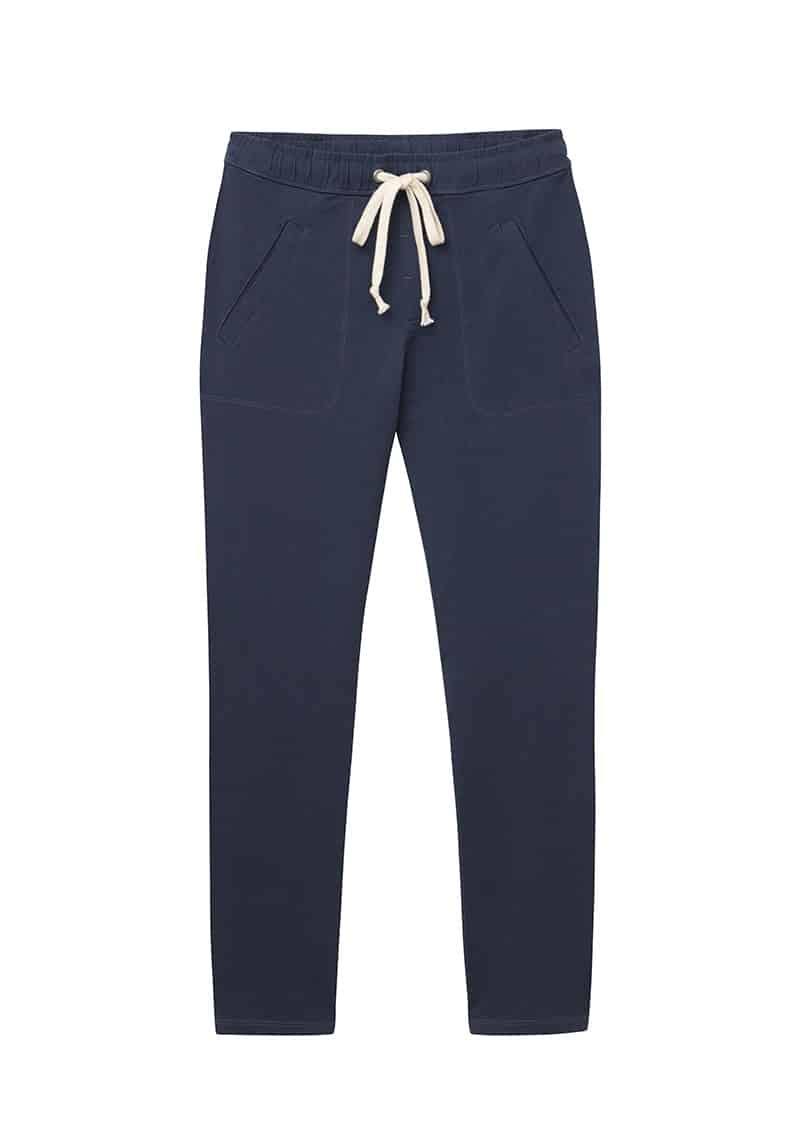
What advice would you offer other business owners for how to navigate these next few months?
The last few months have been really challenging in every possible way. As a business owner, my first priority was keeping the business afloat. We had to think creatively and work as a team to figure out how we were going to survive this crisis—from working remotely to not having any cash flow for months—our goal was to stay alive. Thankfully, we have gotten past that stage.
Once we were able to breathe, we started to study how the world and the consumer would change and interpret what that means for our business. I believe that every crisis is an opportunity for innovation. As entrepreneurs, we have the responsibility and the opportunity to innovate to solve the new needs that will arise from this crisis.
Shifting my mindset to look to the future kept me positive and hopeful when the world around us came crashing down. It allowed me to be grateful and to focus on action—no matter how small—to keep us moving in the right direction.
For a designer who wants to start an apparel company, what types of jobs (for the experience) would you recommend they have ahead of starting the company?
I benefitted greatly from working for major brands as I got to learn the basics of the business. I got the opportunity to learn best practices and see how decision making can be hampered in a large setting. Both of these learnings have been invaluable as I’ve set up my business.
How do you practice self-care?
Self-care is important to me because it allows me to be available for my family and my team. I try to eat healthy foods that nourish my body and workout five days a week to keep my energy up and help with my mental balance.
My biggest self-care indulgence is to sleep in on the weekends. I work late at night, so I don’t get a lot of sleep during the week. My husband is really understanding about this and lets me sleep in while he hangs out with my son. Those few extra hours of sleep keep me sane!
If you could go back and give yourself three pieces of advice when you first started Grey State – what would you tell yourself?
- This is the long game. Have patience.
- Really hone in on why you exist and clearly tell your story.
- Learn from everyone, but trust your gut when making difficult decisions.
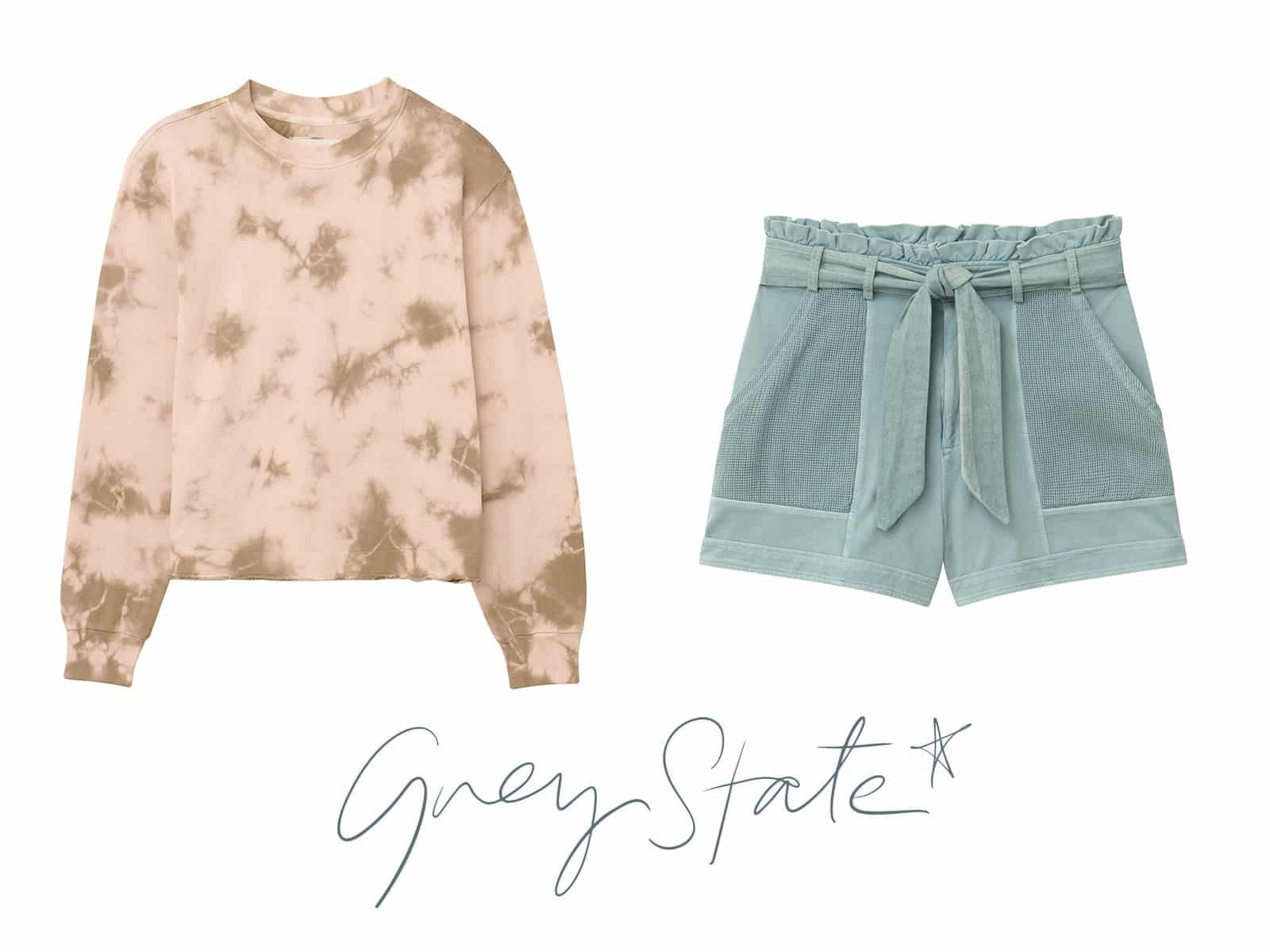
What’s next for you and Grey State?
We have three key initiatives that I am really excited about. Our upcoming collections center around physical and mental wellness.
- Our Wellness collection is launching in August. We are making beautiful pieces with specialized fabrics that nourish you.
- We are also launching a recycled fabric collection in the Fall. The recycled fabrics are made by repurposing textile wastes, which are a heavy burden on our planet’s resources. By using recycled textiles, we reduce waste and carbon emissions.
- We are launching a protective clothing collection in August with environmentally safe anti-microbial and anti-viral protection.
Be sure to follow Grey State online at the following links:
- Noi Solutions Website: http://www.noisolutionsllc.com/
- Grey State Website: https://greystateapparel.com/
- Instagram: @grey_state_apparel
Emily Sprinkle, also known as Emma Loggins, is a designer, marketer, blogger, and speaker. She is the Editor-In-Chief for Women's Business Daily where she pulls from her experience as the CEO and Director of Strategy for Excite Creative Studios, where she specializes in web development, UI/UX design, social media marketing, and overall strategy for her clients.
Emily has also written for CNN, Autotrader, The Guardian, and is also the Editor-In-Chief for the geek lifestyle site FanBolt.com
- Emma Loggins Sprinklehttps://www.womensbusinessdaily.com/author/emma-loggins/
- Emma Loggins Sprinklehttps://www.womensbusinessdaily.com/author/emma-loggins/
- Emma Loggins Sprinklehttps://www.womensbusinessdaily.com/author/emma-loggins/
- Emma Loggins Sprinklehttps://www.womensbusinessdaily.com/author/emma-loggins/

